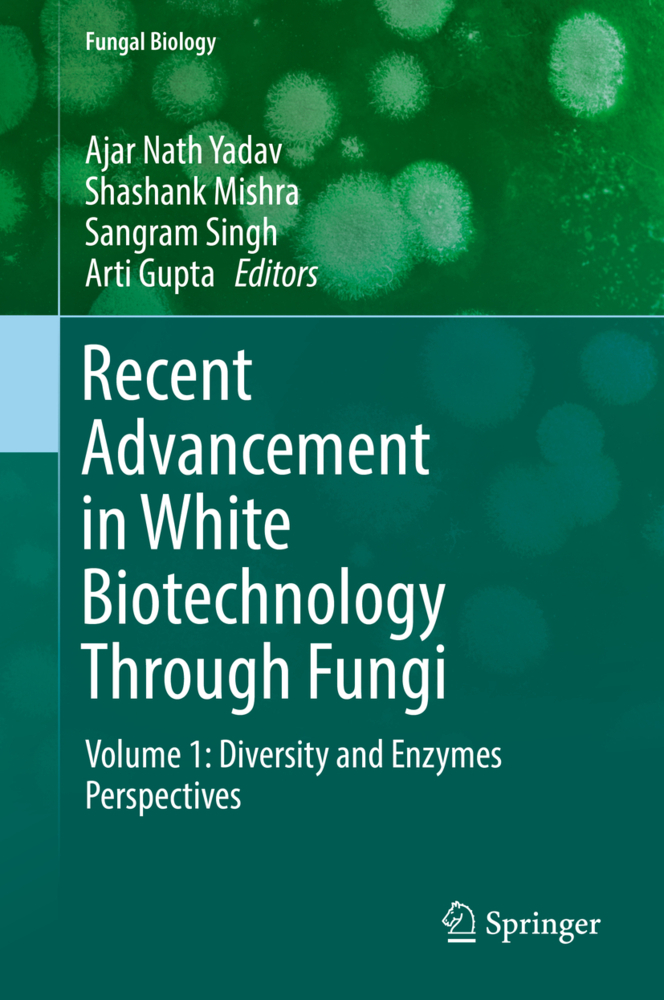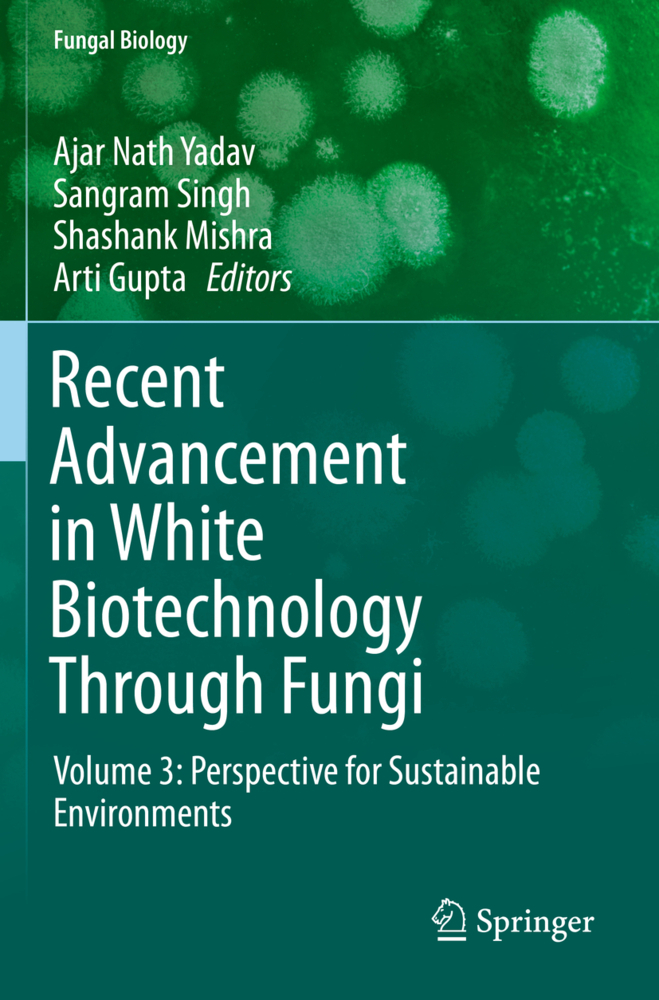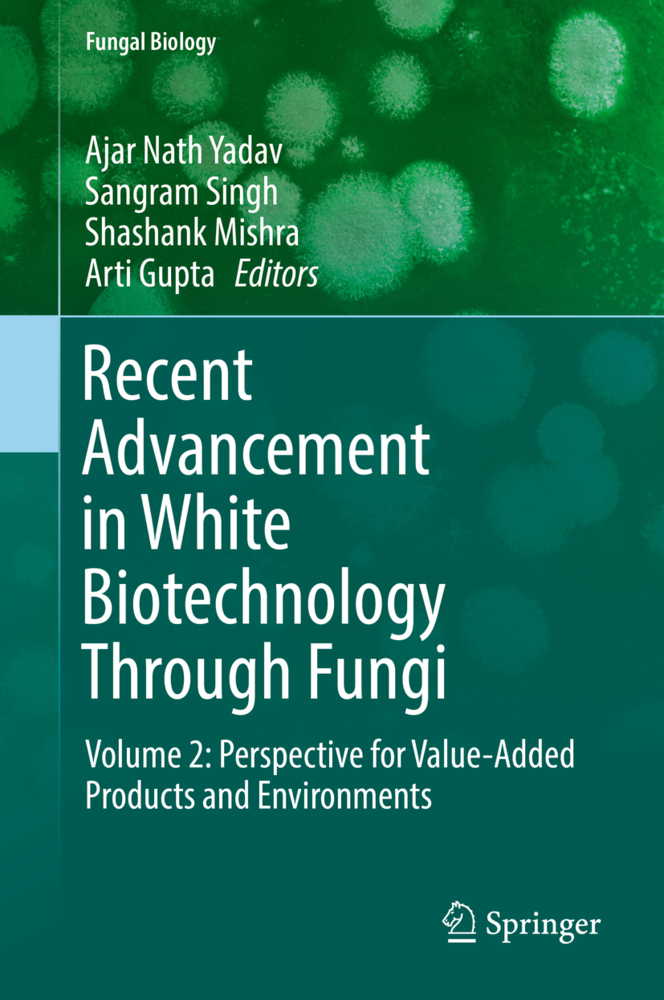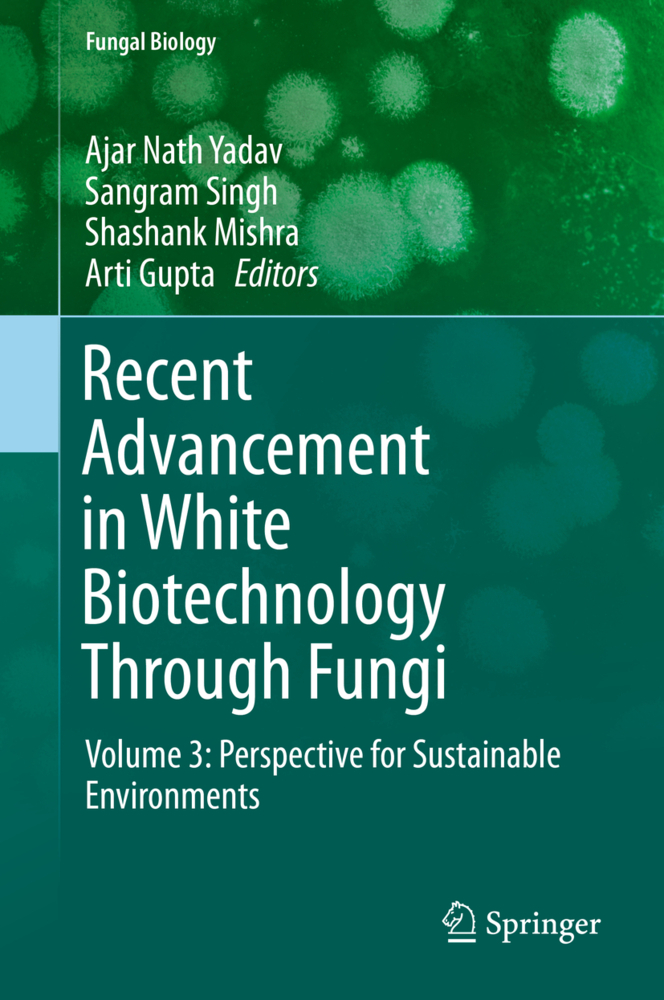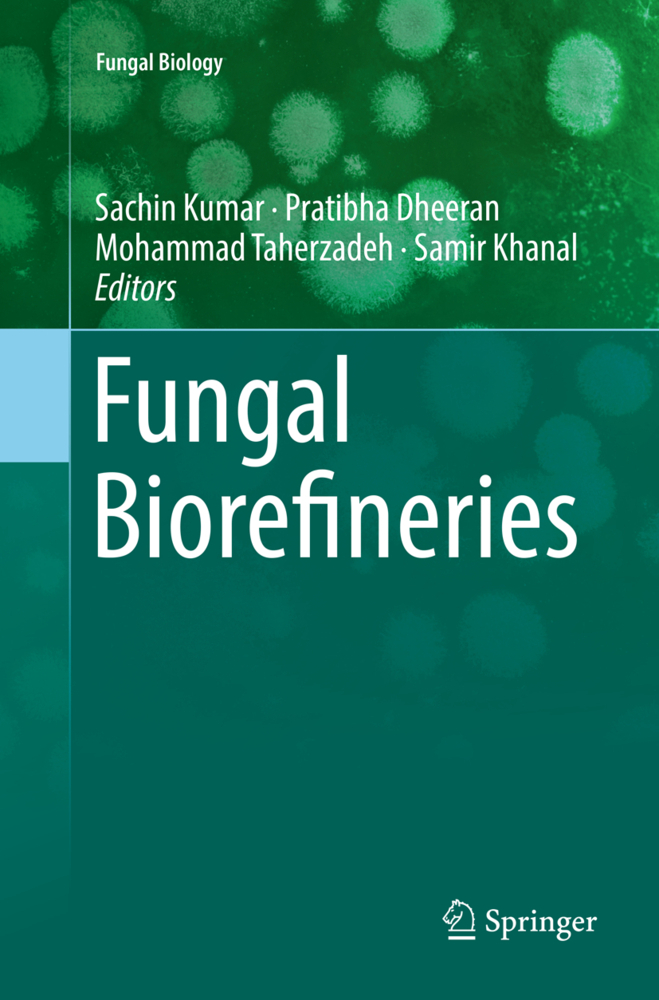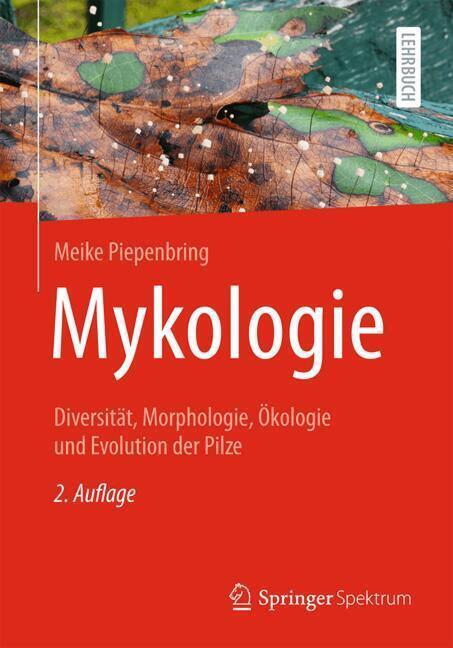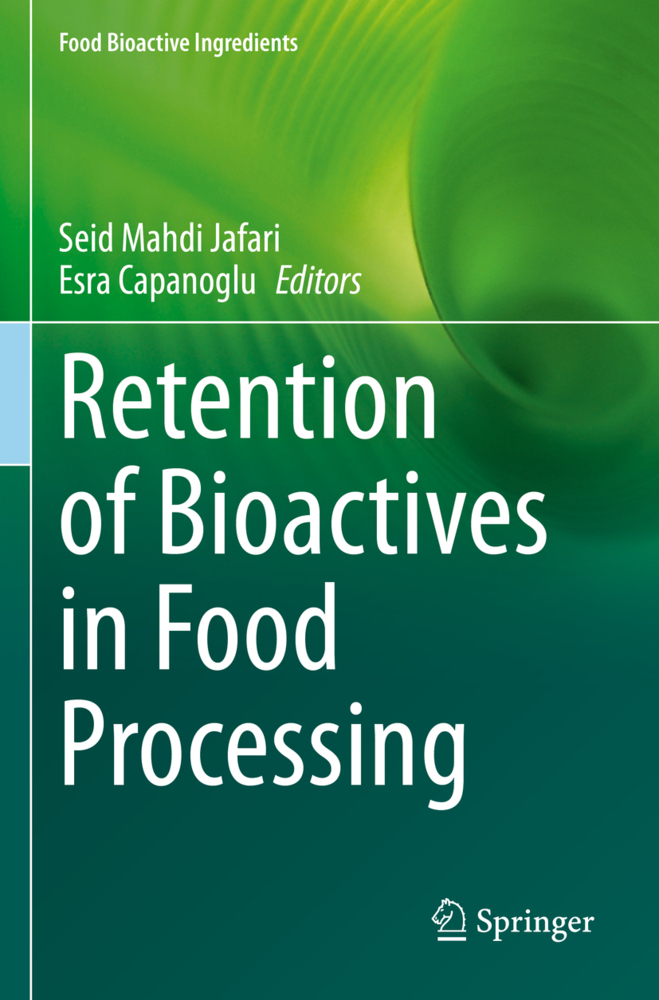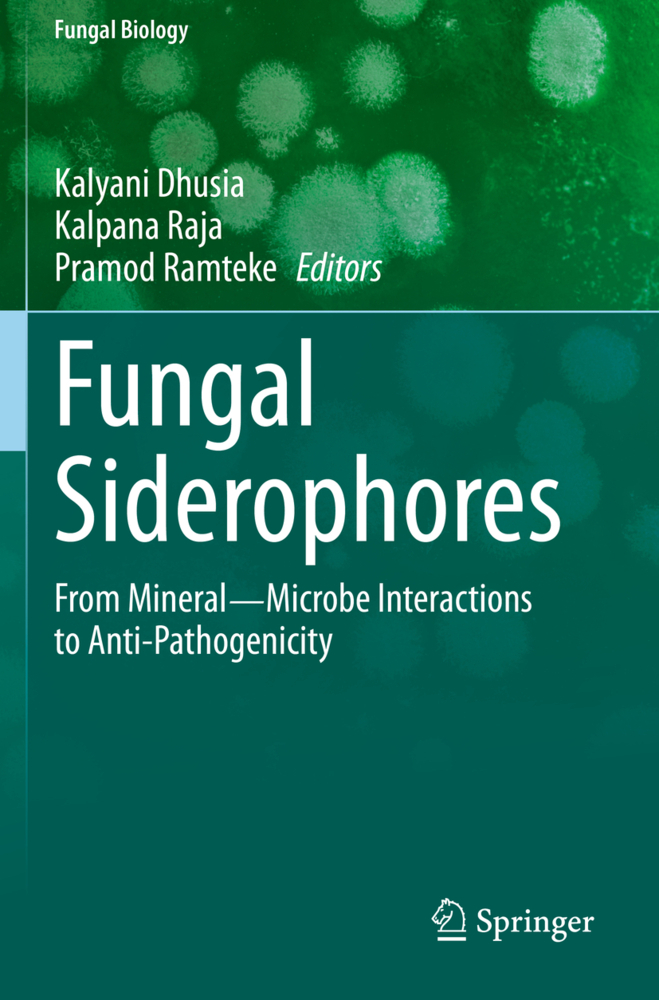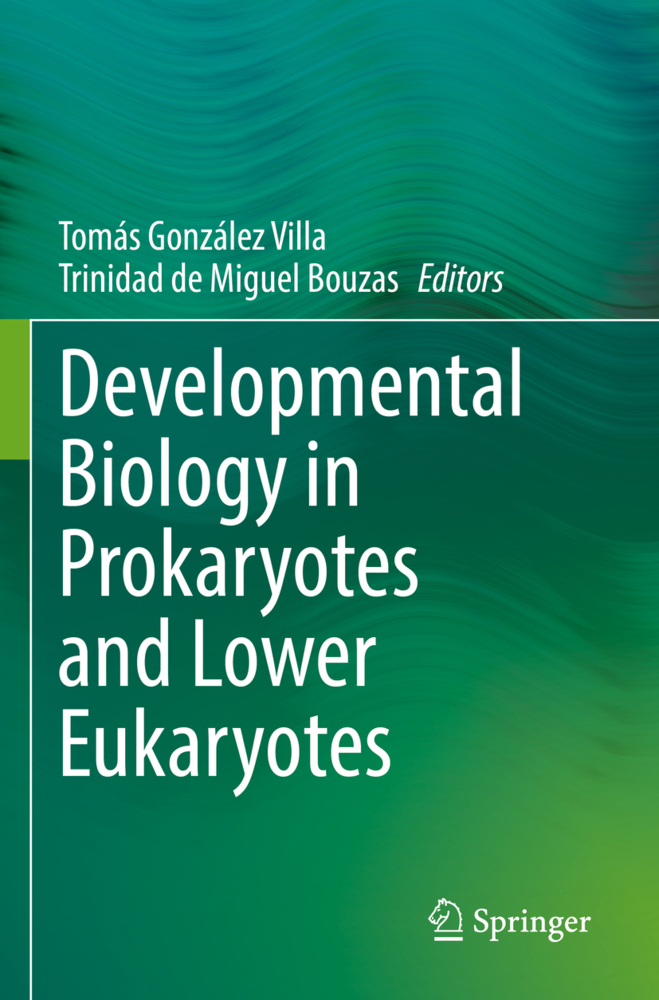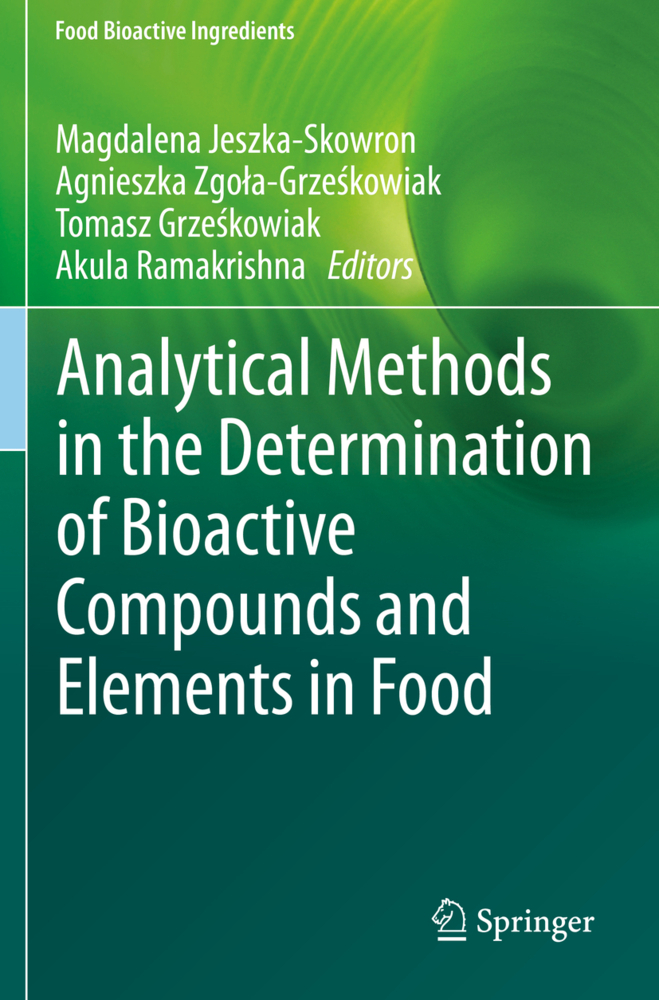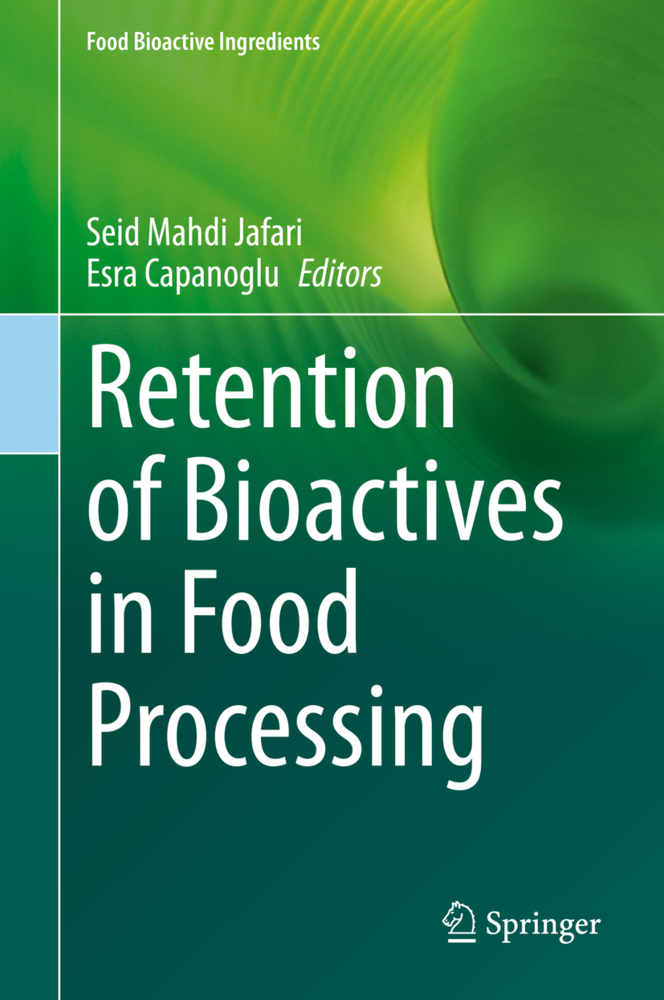Recent Advancement in White Biotechnology Through Fungi
Volume 1: Diversity and Enzymes Perspectives
Recent Advancement in White Biotechnology Through Fungi
Volume 1: Diversity and Enzymes Perspectives
White biotechnology, or industrial biotechnology as it is also known, refers to the use of living cells and/or their enzymes to create industrial products that are more easily degradable, require less energy, create less waste during production and sometimes perform better than products created using traditional chemical processes.
Over the last decade considerable progress has been made in white biotechnology research, and further major scientific and technological breakthroughs are expected in the future. Fungi are ubiquitous in nature and have been sorted out from different habitats, including extreme environments (high temperature, low temperature, salinity and pH), and may be associated with plants (epiphytic, endophytic and rhizospheric).
The fungal strains are beneficial as well as harmful for human beings. The beneficial fungal strains may play important roles in the agricultural, industrial, and medical sectors. The fungalstrains and their products (enzymes, bioactive compounds, and secondary metabolites) are very useful for industry (e.g., the discovery of penicillin from Penicillium chrysogenum). This discovery was a milestone in the development of white biotechnology as the industrial production of penicillin and antibiotics using fungi moved industrial biotechnology into the modern era, transforming it into a global industrial technology. Since then, white biotechnology has steadily developed and now plays a key role in several industrial sectors, providing both high value nutraceutical and pharmaceutical products. The fungal strains and bioactive compounds also play an important role in environmental cleaning. This volume covers the latest developments and research in white biotechnology with a focus on diversity and enzymes.
Cold Active Enzymes from Psychrophilic Fungi and ItsApplications.- Industrially Important Enzymes from White-Rot Fungi or Filamentous Fungi.- Fungal Enzymes for the Textile Industry.- Fungal Laccase.- Fermentation Process for Production of Fungal Cellulases.- Fungal Lipases.- Fungal Community and Eco-Friendly Bioresources for Novel Secondary Metabolites.- Agriculturally Important Fungi.- Fungal White Biotechnology in Biosurfactants.- Synthetic Biology and a Novel Approach for Pharmaceutically Important Compounds.- Global Scenario of Fungal White Biotechnology.- Appendixes
Index.-
Over the last decade considerable progress has been made in white biotechnology research, and further major scientific and technological breakthroughs are expected in the future. Fungi are ubiquitous in nature and have been sorted out from different habitats, including extreme environments (high temperature, low temperature, salinity and pH), and may be associated with plants (epiphytic, endophytic and rhizospheric).
The fungal strains are beneficial as well as harmful for human beings. The beneficial fungal strains may play important roles in the agricultural, industrial, and medical sectors. The fungalstrains and their products (enzymes, bioactive compounds, and secondary metabolites) are very useful for industry (e.g., the discovery of penicillin from Penicillium chrysogenum). This discovery was a milestone in the development of white biotechnology as the industrial production of penicillin and antibiotics using fungi moved industrial biotechnology into the modern era, transforming it into a global industrial technology. Since then, white biotechnology has steadily developed and now plays a key role in several industrial sectors, providing both high value nutraceutical and pharmaceutical products. The fungal strains and bioactive compounds also play an important role in environmental cleaning. This volume covers the latest developments and research in white biotechnology with a focus on diversity and enzymes.
Preface.- Biodiversity of Fungi from Extreme Habitats and Its Industrial Applications.- Rhizospheric Fungi Isolated from Different Plants and Potential Applications in Diverse Sectors
Endophytic Fungi from Different Niches with Potential Industrial Importance.- Marine Fungal White Biotechnology.- Aspergillus Biodiversity, Ecological Significance, and Industrial Applications.- Fusarium Biodiversity, Ecological Significance, and Industrial Applications.- Penicillium Biodiversity, Ecological Significance, and Industrial Applications.- Trichoderma Biodiversity, Ecological Significance, and Industrial Applications.- Thermostable Enzymes from Fungi Isolated from Hot Springs and Its ApplicationsCold Active Enzymes from Psychrophilic Fungi and ItsApplications.- Industrially Important Enzymes from White-Rot Fungi or Filamentous Fungi.- Fungal Enzymes for the Textile Industry.- Fungal Laccase.- Fermentation Process for Production of Fungal Cellulases.- Fungal Lipases.- Fungal Community and Eco-Friendly Bioresources for Novel Secondary Metabolites.- Agriculturally Important Fungi.- Fungal White Biotechnology in Biosurfactants.- Synthetic Biology and a Novel Approach for Pharmaceutically Important Compounds.- Global Scenario of Fungal White Biotechnology.- Appendixes
Index.-
Yadav, Ajar Nath
Mishra, Shashank
Singh, Sangram
Gupta, Arti
| ISBN | 978-3-030-10479-5 |
|---|---|
| Media type | Book |
| Copyright year | 2019 |
| Publisher | Springer, Berlin |
| Length | XIX, 571 pages |
| Language | English |

